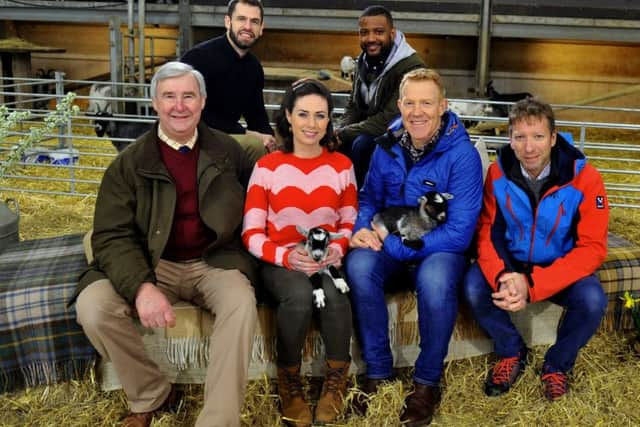Cameras keep rolling as a drama in the lambing sheds stops Yorkshire’s newest TV vets in their tracks
A newborn lamb was fighting for its life and as Julian Norton, pursued by two TV cameras, rushed to the scene, the farmers were beginning to write off its chances.
“We were all on the edge of our seats, willing it to breathe,” said Paul Stead, who was watching the drama unfold on multiple TV screens.
Advertisement
Hide AdAdvertisement
Hide Ad“After about 25 seconds it breathed itself into life. It was a real dramatic moment, I have to tell you.”


Mr Stead is the Simon Cowell of Yorkshire farming, a TV impresario who has spawned what seems like an entire network full of variations on a rural theme.
His latest is a second outing of Springtime on the Farm, a week-long series on Channel 5, beginning on Monday, which is recorded in real time with little or no editing.
His company, Daisybeck Studios, based next to ITV in urban Leeds, also makes Mr Norton’s own series, The Yorkshire Vet, and has persuaded Countryfile’s Adam Henson to take a leave of absence from the BBC to join the cast.
Advertisement
Hide AdAdvertisement
Hide AdSome 1.5m last year viewers saw the initial run of the show, broadcast from Cannon Hall Farm at Barnsley.
“People like the mantra – it’s real, rural and raw,” Mr Stead said. “What you get in Yorkshire is people who are honest about their situation. They don’t gild the lily, they tell it how it is. You get a proper story from people who are happy to tell it in an honest way.”
Part of the story is the farm itself, a working unit which has been open to the public since 1989. It had been forced to diversify after falling into the red and its owner, Roger Nicholson, was advised to sell up.
Instead, he looked to other producers seeking to spread the risk, and went to seek advice from Adam Henson’s father, Joe, in the Cotswolds.
Advertisement
Hide AdAdvertisement
Hide Ad“He’d had the same idea, of letting the public in,” said Mr Henson, who took over from his father 20 years ago.
“So for me, Cannon Hall is almost a home from home.”
The “as live” production technique, in which an hour-long programme is in the can in 60 minutes, is vastly different from the BBC method.
“On Countryfile, we film for two days to get eight minutes of TV,” he said.
He sees the popularity of Daisybeck’s Yorkshire shows – a slate that also includes Big Week at the Zoo, from the wildlife park at Doncaster – as an opportunity to promote rural life to a mainstream audience.
Advertisement
Hide AdAdvertisement
Hide Ad“I don’t want to preach but it would be helpful if we did more to encourage the next generation of farmers, and one way is to show people what a vibrant and diverse business it is,” he said.
“Careers officers should realise that it’s not just a path for non-academic students.
“There’s a lot of false news about farming, fuelled by animal activists that find isolated or untrue incidents that are not representative at all. We have some of the world’s highest welfare standards, and we should celebrate that.”